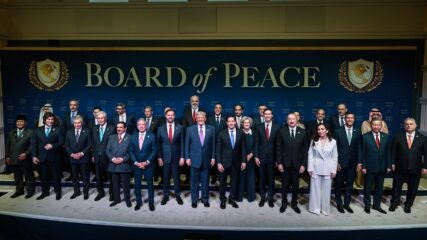While the results of the recent European Parliament elections indicate a weakening of parties that for years have directed the course of the European Union, they also show relatively high support for a strong organization that wields power and influence.
Reliable resources for deeper Israel understanding
Embrace informed content on Israel, the Middle East and the Diaspora.
Begin with 7 days free to explore CIE’s rich sources, expert analyses and guided knowledge building.
$39 / year
JOIN CIE+
Already have a CIE+ account?
SIGN IN









